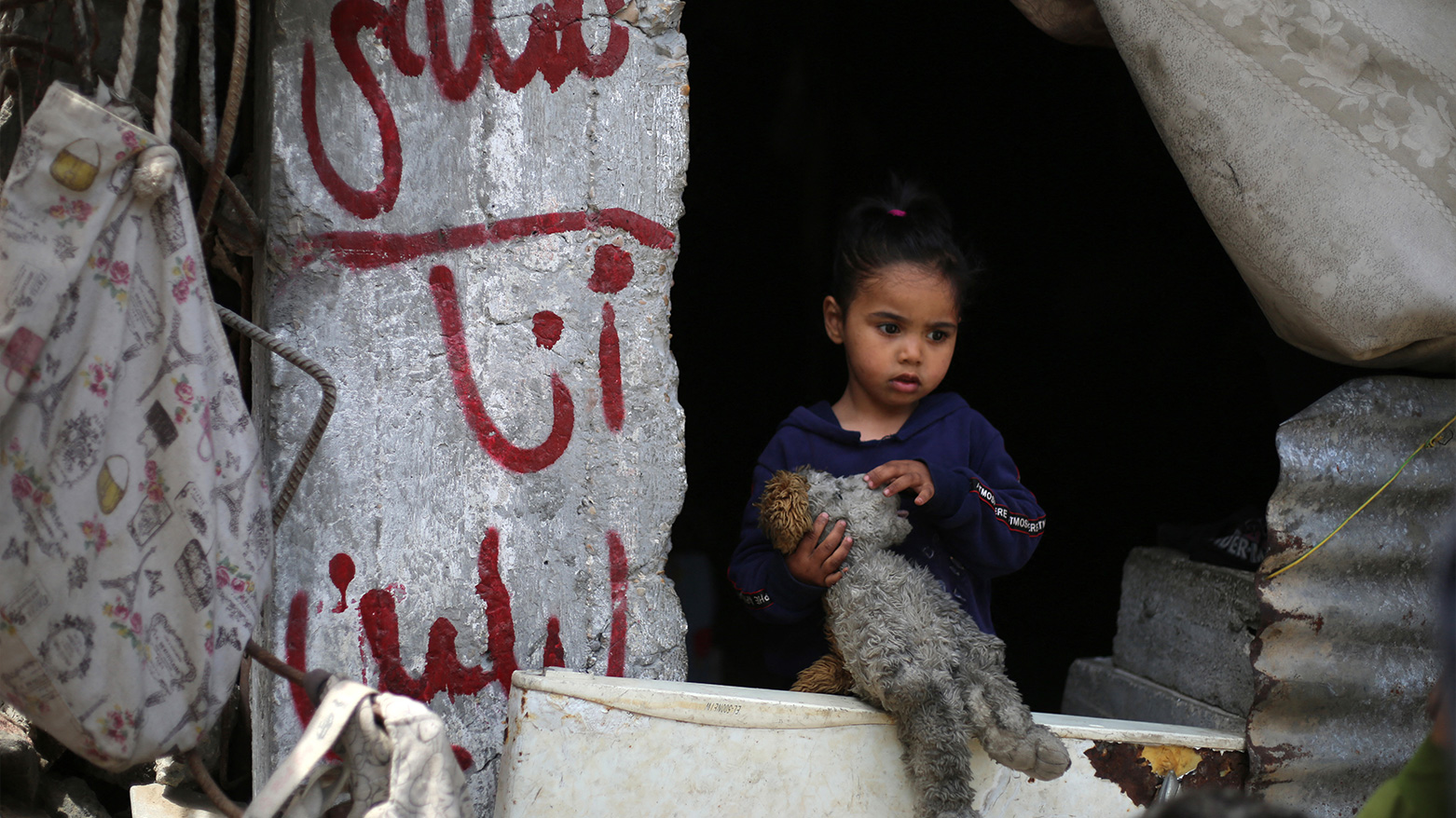‘Time Bomb of Disease’: Gaza Warns of Polio Outbreak as Vaccine Deliveries Blocked
Um Ziad, caretaker of her injured grandson Sanad, told Kurdistan24: “He was just six weeks old when they brought him to me wounded. Now his uncles and I are everything to him. He shakes and screams while playing—it's the shrapnel in his leg. We fear he may be paralyzed.”

By Kamaran Aziz
ERBIL (Kurdistan24) — Health officials in Gaza have sounded a grave warning over Israel’s continued restriction of vaccine deliveries to the war-ravaged enclave, describing the looming threat of a polio outbreak as a “time bomb” that could devastate the lives of hundreds of thousands of children.
According to a statement issued by the Ministry of Health in Gaza, the lives of over 602,000 children under the age of ten are now at risk as Israel continues to block the entry of essential vaccines and immunizations. “The lives of our children hang in the balance,” the statement read. “Preventing the delivery of polio vaccines to Gaza is nothing less than a form of warfare against public health.”
The alarm comes amid a broader humanitarian catastrophe in Gaza, where months of siege and bombardment have crippled the healthcare system and pushed the civilian population into crisis. Hospitals have been operating with limited power, critical supplies are vanishing, and medical professionals are overwhelmed.
Polio, a disease once on the brink of global eradication, poses a renewed threat in Gaza, where living conditions—especially in overcrowded refugee shelters and displacement camps—are rapidly deteriorating. The inability to deliver timely vaccinations could lead to paralysis in children, health experts warn, or worse, the resurgence of a full-scale epidemic.
Um Ziad, a grandmother and primary caretaker of her grandson Sanad, shared her concerns with Kurdistan24. “My grandson was one and a half months old when they brought him to me injured. Now his uncles and I have become everything for him. People love him and play with him. But when he plays, his limbs shake and he screams. We know it’s because of the shrapnel in his leg. It’s like he’s being electrocuted,” she explained. “So far, I’ve given him three polio vaccines and we’re waiting for the fourth. We fear that in the future he will be completely paralyzed.”
Her testimony reflects a broader anxiety felt by countless families in Gaza who have witnessed both physical and psychological trauma in their children, now compounded by the specter of vaccine-preventable diseases.
Marwan Hemes, director of mobile hospitals in the territory, echoed the warning. “Not allowing polio vaccines for children, when we currently have 602 thousand children under the age of 10, puts all their lives at risk and they need vaccines,” he told Kurdistan24. “For several weeks, Israel has not allowed this vaccine to enter the Gaza Strip.”
Hemes further stressed that the issue is not merely logistical but existential. “This isn’t just about medicine or cold storage or supply chains. This is a war in another form—a war against children’s rights and their access to the most basic form of care.”
The World Health Organization (WHO) and UNICEF have previously warned that any disruption in immunization campaigns in conflict zones could roll back decades of progress in disease control. Polio, in particular, is highly infectious and thrives in unsanitary conditions—precisely the environment now unfolding in Gaza.
Israel has yet to comment publicly on the recent accusations. However, it has previously defended its control over goods entering Gaza on grounds of security, often citing concerns about materials that could be repurposed for military use by Hamas.
The standoff has placed the international community in a difficult position. While humanitarian agencies have called for immediate intervention to ensure vaccine delivery, logistical and political obstacles persist. Aid convoys have faced difficulties reaching their destinations, and repeated calls for ceasefires to allow medical deliveries have gone unheeded.
As Gaza’s fragile public health system teeters on collapse, the stakes have never been higher. Experts warn that without swift action, a disease that should have been confined to history may soon return—not as a relic of the past, but as a tragic consequence of modern warfare.
For families like that of Sanad and his grandmother, the fear is not theoretical. It is embodied in every convulsion, every delayed vaccine, every passing day without protection.
